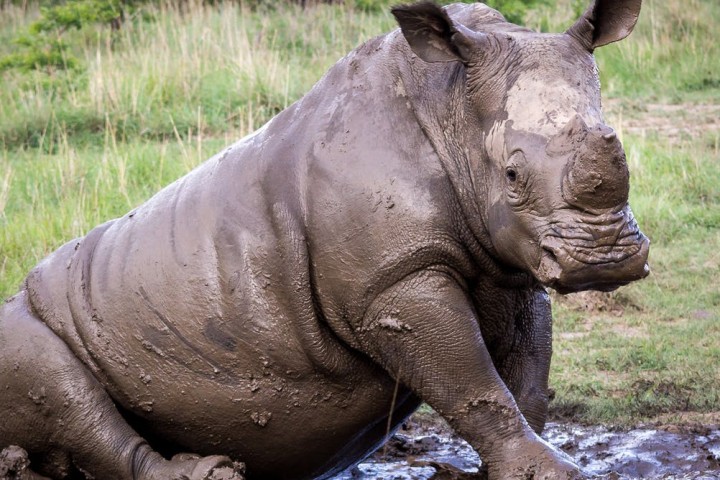Nature Will Need Up to Five Million Years to Fill the Man-Made Gaps

Humans are killing off animal and plant species so rapidly that evolution is unable to keep up to fill the gaps left behind, the work suggests.
Unless conservation efforts are stepped up, nature will require between three and five million years to recover the levels of biodiversity expected to be lost over the next 50 years, predicted researchers.
There have been five previous mass extinctions in the past 450 million years, and scientists have warned climate change, poaching, pollution and habitat destruction are bringing about a sixth.
More than 300 mammal species have been eradicated by human activity, according to researchers at Aarhus University in Denmark and the University of Gothenburg. More are likely to follow them into extinction in the next few decades.
The team studied mankind’s impact on nature using an extensive database that included living species as well as those which died out in the relatively recent past as humans spread across the globe.
Using advanced simulations, researchers estimated how long it would take for evolution to fill gaps in biodiversity following extinctions.
Instead of simply counting lost or threatened species, the study considered the amount of time each had spent evolving to reflect. The extinction of species with distinct lineages and few close relatives meant the loss of “unique ecological functions and the millions of years of evolutionary history they represented”, researchers said.
“Large mammals, or megafauna, such as giant sloths and sabre-toothed tigers, which became extinct about 10,000 years ago, were highly evolutionarily distinct,” said Aarhus University palaeontologist Matt Davis, who led the study. “Since they had few close relatives, their extinctions meant that entire branches of Earth’s evolutionary tree were chopped off.”
Researchers suggested threatened mammals with long evolutionary histories should be prioritised for conversation.
They highlighted Asian elephants, one of only two existing species of a once mighty mammalian order that included mammoths and mastodon, and which are said to have just a 33-per-cent chance of surviving the century.
“There are hundreds of species of shrew, so they can weather a few extinctions,” said Mr Davis. “There were only four species of sabre-toothed tiger; they all went extinct.”
Professor Jens-Christian Svenning, also of Aarhus University added: “Although we once lived in a world of giants - giant beavers, giant armadillos, giant deer, etc – we now live in a world that is becoming increasingly impoverished of large wild mammalian species.
“The few remaining giants, such as rhinos and elephants, are in danger of being wiped out very rapidly.”
The world has lost 2.5 billion years’ of unique evolutionary history in the past 130,000 years, according to the study, published in the journal Proceedings of the National Academy of Sciences.
Even if humans completely stopped damaging behaviours and extinction rates returned to normal, it would be between five and seven million years before biodiversity returned to the level it was at before modern-day humans evolved.
Tony Juniper, executive director of advocacy and campaigns at WWF-UK, said the study was "another warning sign that our world is in crisis".
He told The Independent: "The more information we gather, the more we are able to confidently confirm that we are on the brink of a mass extinction event the like of which we have not seen on earth for tens of millions of years.
“As we tear apart the web of life, unique animals and plants that have evolved in different ecosystems are disappearing forever."
Fundamental changes to natural world could have dire consequences for humanity, warned Mr Juniper.
“We need to urgently halt this loss of natural diversity, not only because of the importance of wildlife for its own sake but because human societies are as embedded in that web of life as tigers, bumblebees and primroses," he said.
“The more we damage nature’s fabric, the more we imperil our own future.”
